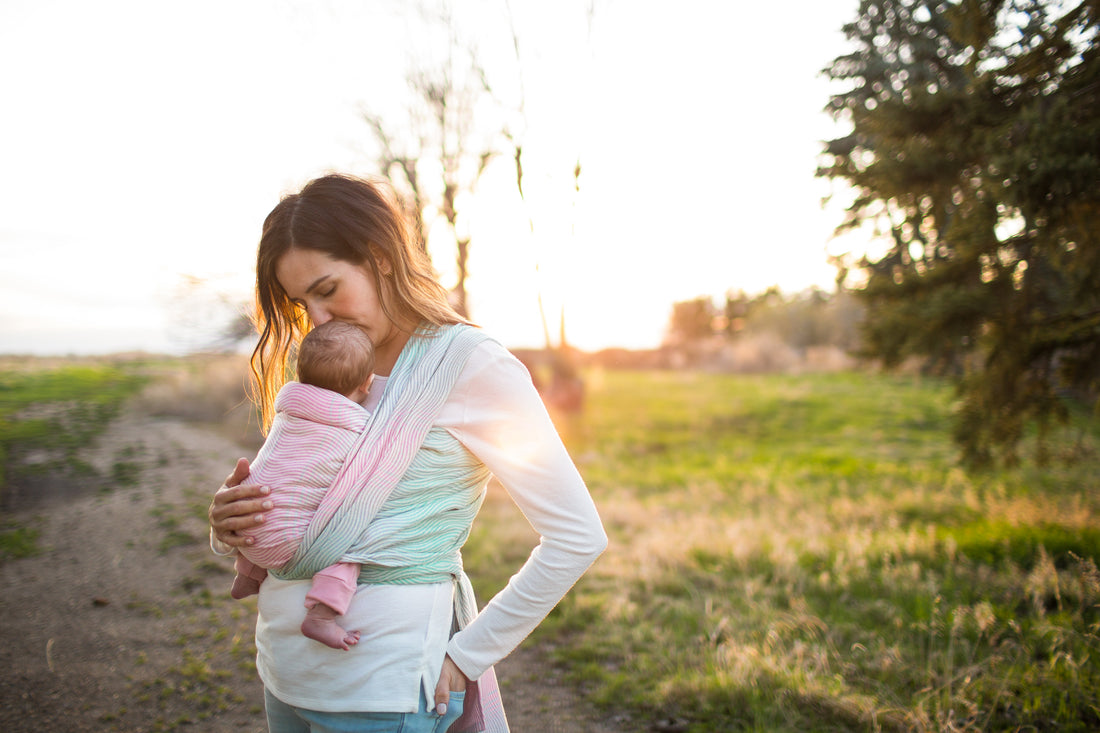I remember being handed a huge pile of booklets and other information when I was pregnant with my daughter – about nappies, about breastfeeding, about reducing the risk of SIDS… Somewhere, tucked away in the booklet provided by the NHS, was a single page about Antenatal and Postnatal Depression (AND/PND).
I skipped past it, never thinking for a moment that it could apply to me. I was in a happy relationship, we were about to move into our own house, and I had no history of mental illness.
But after my daughter was born, nothing seemed to work. Everything I knew from my extensive reading was at odds with what my baby seemed to need. Routine was impossible: she wouldn’t take a dummy or lie on her back in the crib, meaning that she was constantly latched to my breast or asleep across me. I remember desperately calling my own mother, sobbing over the computer.
“Just pick her up and love her,” my mum sagely said. “Let her sleep in with you, and feed her whenever she squawks.”
I protested. All my books and websites were at odds with her advice – routine was vital, back-sleeping in cots prevented SIDS... And then a knot settled in the pit of my stomach. I’d read about safe co-sleeping, about the need to feed on demand… I knew these things could (and arguably, should) be done. The part of what my mother had said that made me so deeply uncomfortable was the command to love my child.
I pushed the thought aside. I was busy – I needed to pack for our impending move. I needed the baby to sleep away from me. I needed her to be content alone. Or so I thought. What I actually needed was time, and closeness with my baby.
A few days later, a package arrived on the doorstep. It was from my mum’s friend, who’d overheard my desperate conversation – a woman I’d known from birth. Inside were a sling, and a very heartfelt note. She shared stories about her children – my friends – and how she’d felt when they were young. She confessed to having had PND.
Her feelings were so similar to my own that I began to accept that my baby wasn’t at fault in all of this – she was not challenging. I was unwell. I sought help.
The presence of the sling, however, continued to baffle me. I’d seen women with infant carriers before but never given them much thought – they weren’t mentioned in the literature we’d been given, and at that time they weren’t as commonplace as they are now. I laid the sling to one side, unsure of when I should use it – was it for shopping trips, or hiking, or in the home…?
It lay on the top of the piano for a week. I continued to struggle to pack our belongings as my husband struggled to adjust to his life at work on very little sleep. And then one day our pram broke, and I needed to go into town for more boxes.
Hesitantly, I put my daughter into the sling. She settled instantly and went to sleep. We collected boxes without a murmur, went for a coffee, visited the library… I felt my shoulders begin to fall from where they’d been present around my ears, hunched up in stress.
We went home. I fed my daughter, and then instinctively put her up again. I could take stock of her now, even as I packed, and her soft, warm skin beside mine was comforting in a way I couldn’t have imagined it would be. I would stop periodically to smell her head, marvel at how her nostrils were exactly heart-shaped. For the first time since her birth, I let myself begin to appreciate the perfect, glorious human being that she was. And because I could continue with the drudgery of packing, the guilt that I'd felt every time I stopped to hold her was assuaged.
Life continued, and we moved forward. It was slow – a process that took almost two years, a lot of medication and therapy, and many hours with the sling – but I fell in love with my daughter. I think about how bad things might have been had my mother’s friend not sent that package. And as much as the note was the catalyst that began my recovery, the sling was definitely the best possible medicine I could have asked for.
Asking for help
If you think you might be suffering from AND/PND, your doctor, midwife or health visitor is a good point of contact. The PANDAS Foundation is a charity that specialises in natal mental health, though Mind and the Samaritans can also offer assistance.
samaritans.org
For more information about slings, the UK Sling Libraries Network is a good starting point. facebook.com/UKSLNetwork
____
Frances Moldaschl is a Scottish mum of two, currently living in the Aberdeenshire hills with her Danish husband. When she isn’t writing, she can usually be found hoarding craft supplies and drinking too much tea.
Photo: Oscha Slings
First published in Issue 50 of JUNO. Accurate at the time this issue went to print.










